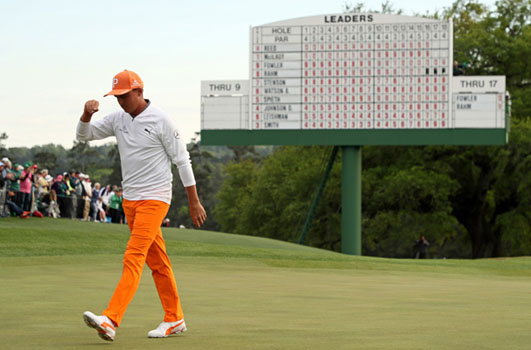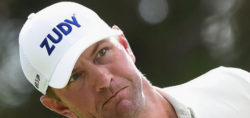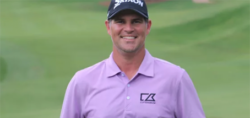How Should We Define Rickie Fowler’s Career?

Rickie Fowler is one of the PGA Tour’s most popular and beloved players. He’s an iconic brand due to his loud Puma gear and friendly nature. I typically root for him to do well due to his persona.
But Fowler is also somewhat at a crossroads with his career performance. He had top-5s in every major in 2014, owns a PLAYERS win among four others and two Euro victories. So, how should we view him? GolfWorld’s Shane Ryan writes a good piece on where Rickie will ultimately be judged moving forward.
I can’t resist the urge to explore the career of a player who has been both enormously successful and mildly underwhelming, and who, at age 29, seems to stand on the precipice of either unprecedented success or crushing disappointment.
Fowler came to the tour with a good deal of hype. He was the No. 1-ranked amateur player for almost a full year, he won the Ben Hogan Award as the best college golfer in the country, and he helped lead the U.S. to two Walker Cup victories. He only needed a season to earn his card for the PGA Tour, and by 2010 he looked poised for big things.
Have those big things panned out? Well … sort of.
If you looked at Fowler’s résumé divorced from his image, and from his name, it’s very good—starting with that 2012 Wells Fargo win (in a playoff against Rory McIlroy), he’s won four times in America, including a FedEx Cup playoff event and the 2015 Players, and twice in Europe. He’s been ranked as high as No. 4 in the world, and at age 29, he’s already played on three Ryder Cup teams. This is a solid résumé, by ordinary standards.
So why isn’t he winning more? Even Fowler defenders in these prestige spats have to concede that in the last three years, he’s been outshone by the likes of Jordan Spieth, Justin Thomas and Reed. Each of them has surged past Fowler’s career-win total, and they’re all younger (24, 25 and 27, respectively). Nor is that an unfair comparison; with the possible exception of Spieth, there was more fanfare attending Fowler’s rise to the pro game than any of them.
Even Brooks Koepka has a U.S. Open title now, and Fowler has also had to watch players in similar circumstances to his own, like Dustin Johnson and Jason Day, breakthrough and win their own first majors. If Fowler isn’t necessarily the best player to lack a major title—and I think he is, at least among players 35 and younger—he’s certainly the most famous.






